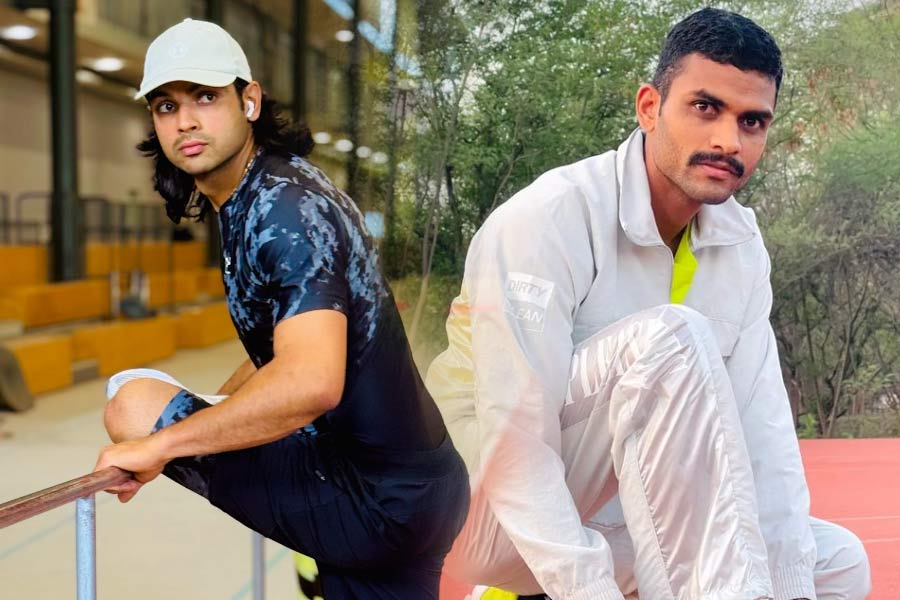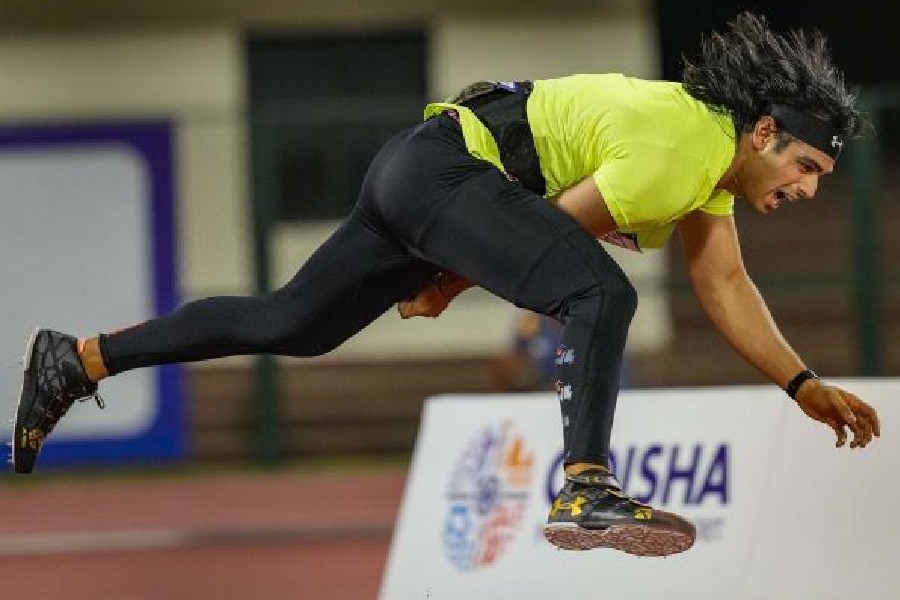Just focus on training and don’t get scared by the fame of the opponents' is the mantra Paris Games-bound high jumper Sarvesh Kushare learnt from none other than Olympic and world champion javelin thrower Neeraj Chopra.
Kushare said Chopra's advice has boosted his confidence as at one point in time this year, he was not even sure of making the Paris Games cut. He made it to the Olympics through world ranking quota. The Paris Games automatic qualification mark was 2.33m.
From doing practice on fodder-made makeshift mat to becoming the first Indian high jumper to qualify for the Olympics, Kushare has come a long way.
"I have not met Neeraj bhai for a long time, but when we met last time, he told me to focus on training and not be afraid of the fame of the opponents. He always keeps giving important tips," Kushare told PTI Bhasha in an interview from Poland where he is training along with other Paris-bound Indian athletes.
"He (Chopra) is my idol and he gave us confidence by winning the first ever Olympic medal in athletics. We also want to be like him and bring pride to the country,” said the high jumper, who hails from Deogaon village, a few kilometres from Nashik in Maharashtra.
With a personal best of 2.27m and season's best of 2.25m, making it to the final round in the Paris Games can be a realistic target. The 29-year-old, who is making his Olympic debut, though, claimed that he has been jumping over 2.30m mark frequently during practice.
"It is only my height that is small but I am also very strong from within. There is no fear of seeing my opponent's personality. It is important to be in top form at the right time and have faith in your preparation,” Kushare, who stands at 5 feet 9 inches, said.
"Right now the focus is on the qualification round which will be held on August 7 at 10 am. The first goal is to make it to the finals. I will plan for the rest later." Kushare, who is currently training at Spala, Poland, along with other Olympic-bound Indian athletes, started the sport on a makeshift mat made of waste from corn which was used as fodder for cows.
''There was no high jump mat in our village, so the corn fodder collected for the cow was used as a mat with a foam cover on it. It was used as a landing area and we used to do practice on it,'' he recollected.
''I started playing under the guidance of my school's PT teacher R W Jadhav sir. Then I went to the Army Sports Institute and also got support from Olympic Gold Quest (OGQ) which sent me to America for training." He became a father nine months ago but he will be able to see his newborn daughter only after the Olympics.
"I have a nine-month-old daughter but I have not met her since November. Initially, I stayed with her for just five days and now I will meet her only after the Olympics," he said.
It will, however, be a tough task for Kushare to be in the medal bracket in Paris. At least nine athletes have jumped 2.33m or above in the last one year.
Qatar’s Mutaz Barshim and Gianmarco Tamberi of Italy shared the gold medal in Tokyo with an identical jump of 2.37m. Tamberi is the leading the chart this season with 2.37m while Barshim has been struggling a bit with a season best of 2.31m.
At one point in time, Kushare, who won gold with a jump of 2.25m in the National Inter-State Championship in Panchkula in June, was uncertain whether he would qualify for the Paris Olympics or not.
"Before June, my ranking had gone down to 36 because I could not play in May when competitions were going on all over the world. I was afraid whether I would be able to play in the Olympics or not. I was under a lot of pressure but then I qualified by performing consistently well in Malaysia, Kazakhstan and Panchkula,” he said.
''I had a lot of problems due to an ankle injury but now my confidence has increased by practising well consistently.
Talking about his daily training routine at Spala, he said, "Practice includes gym, speed work, strength training. The recovery sessions here are very good. We just rest in our free time because it is very important to give rest to the body." He said when asked about his routine .
"I talk to a sports psychologist regularly for mental preparation. He tells me how to deal with pressure and how to keep myself mentally fresh. I do yoga and meditation every morning." The Indian athletics team has been training at Spala from July 8 and will leave for Paris on July 29.
Except for the headline, this story has not been edited by The Telegraph Online staff and has been published from a syndicated feed.












